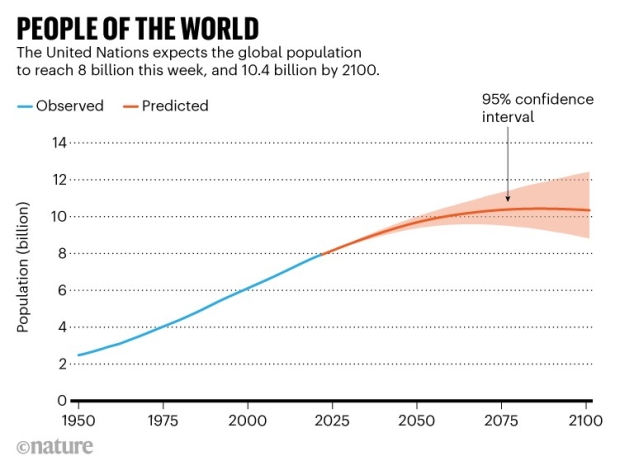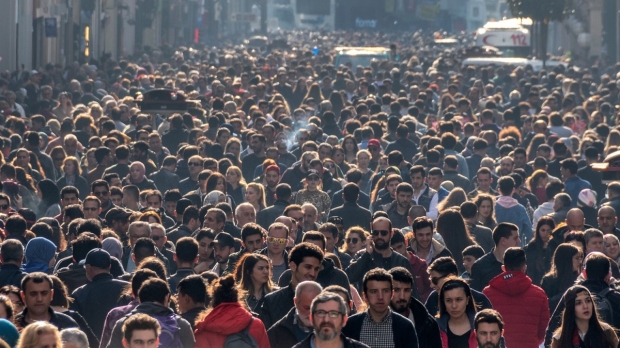A new article published in Nature has revealed that new models from the United Nations (UN) indicate that on November 15, the world population reached 8 billion people.

The article published on November 15 states that it was just twelve years ago that Earth's population was sitting at 7 billion people, and less than 100 years ago, the population was at just 2 billion people. With the release of the new models, the UN also released its updated predictions for what it thinks Earth's population will be by 2100, and according to its updated chart, as seen above, the UN believes that by 2100 Earth will support 10.4 billion people but around 2075 there will begin a plateau that will eventuate into shrinking.
Notably, officials such as Patrick Gerland, who leads demographic work at the UN Population Division in New York City, have said that while it may be a grim thought or a "crude approximation" that Earth's population growth will begin to slow, it's more a "symbolic finding", while simultaneously admitting that there is no way to know for sure that November 15 was the day that Earth officially passed 8 billion people, as some locations around the world are blind spots the UN struggle to get reliable data from. Those locations are countries such as Somalia, Yemen, and Syria.
"It is a crude approximation that is more of a symbolic finding. We may have passed it, or it may be a little later, but it's around this time that humanity is reaching 8 billion," says Gerland.
However, within the report published by Nature these newly updated models may be the "most reliable estimate that the UN has produced so far".
The UN's updated forecast outlines that previous population estimations pegged Earth's total population by 2100, falling somewhere between 8.8 to 11 billion. One 2018 estimation from the International Institute for Applied Systems Analysis (IIASA) in Vienna estimated that it would be about 9.5 billion by 2100. However, taking into account updated fertility rates and survival rates among children, the IIASA will be putting out an updated estimation of 10 billion to 10.1 billion by 2100.
"If you make even relatively small adjustments in these fertility-rate trajectories it accumulates, and suddenly a big country can have 100 million people more 80 years from now," says Tomas Sobotka, a population researcher at the Vienna Institute of Demography.
Furthermore, more reliable data is coming out of China since the country ended its one-child policy in 2015. However, the UN's model suggests that China's population has already reached its peak and that it will begin to decline slowly every year until 2100, as the nation is already experiencing more deaths than births per year.
"The Chinese statistics are suggesting there are already more deaths than births in China, and in that situation, the population will start to decline," Gerland says.


